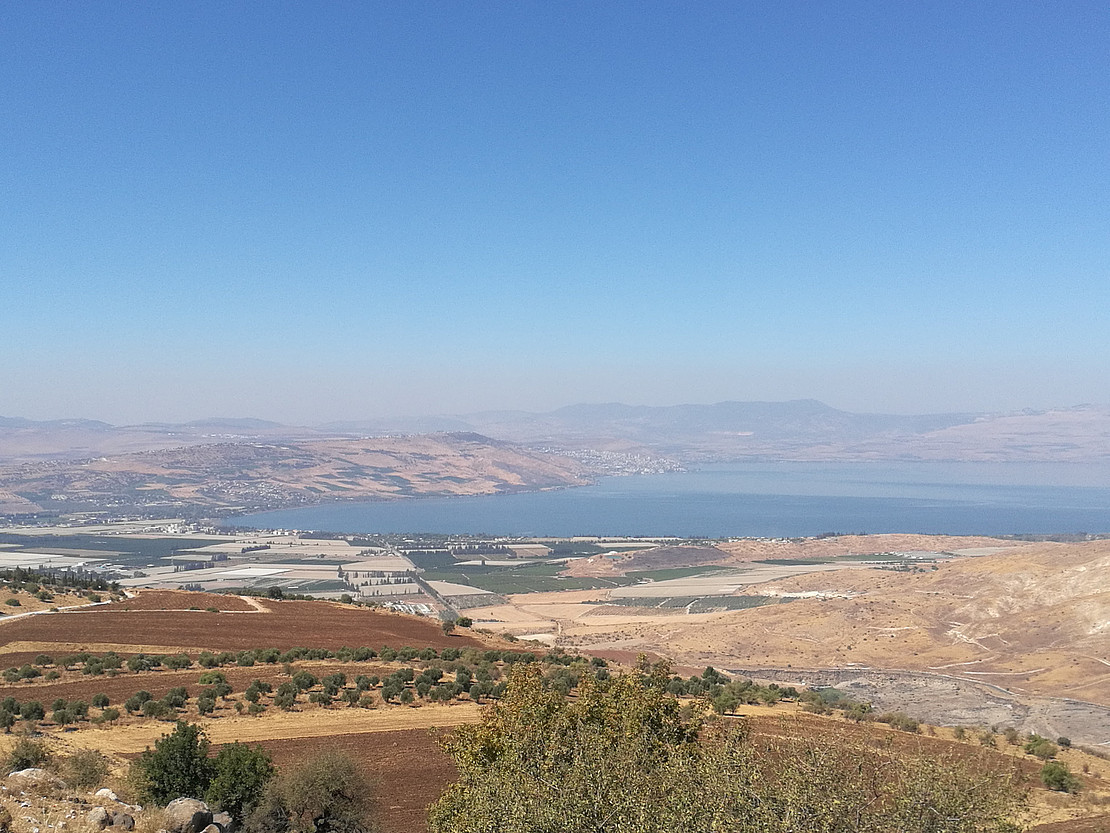This page contains automatically translated content.
Water and electricity for the Middle East
 Image: Theobald/Little.
Image: Theobald/Little.Last year, Israel and Jordan agreed that Jordan would receive 100 million m³ of fresh water per year from the Sea of Galilee. This will supply Jordan's agriculture and the capital Amman with fresh water via the King Abdullah Canal. There are plans to increase this volume by another 200 million m³; at the same time, water shortages threaten the Levant due to climate change.
And to solve this dilemma, Israel is considering the construction of a pipeline nearly 50 km long that would feed desalinated seawater from the Mediterranean Sea into the Sea of Galilee, through which the Jordan River flows. In an initial study, Martin Klein and Prof. Dr. Stephan Theobald of the University of Kassel have now demonstrated that the project could be combined with the construction of a hydropower plant on the pipeline; because the lake is more than 200 meters deeper than the Mediterranean Sea, a hydropower plant could exploit the natural gradient and generate environmentally friendly electricity.
What is possible, depending on the design of the desalination plant, the pipeline and the power plant, is a capacity of about 9.3 MW to 47.5 MW and an annual electricity generation of about 78 - 400 GWh. This would recover between 11 and 16 percent of the energy needed to desalinate the water. This depends, among other things, on the cross-section of the proposed pipeline, the water production of the desalination plant, and the operation of the power plant. In addition to continuous power generation, the hydropower plant could also be operated intermittently by temporarily storing the inflowing water in a storage reservoir. This would allow controlled (pumping) storage operation and power generation on demand. Such operation would be particularly advantageous in this regard in conjunction with photovoltaics, which depend on the day-night cycle and are currently being heavily developed in Israel.
"All of this would address water scarcity while contributing to the expansion of renewable energy," explains Prof. Theobald, head of the Department of Hydraulic Engineering and Water Resources Management at the University of Kassel. Currently, Israel generates 94 percent of its electricity from fossil fuels. According to Theobald, policy makers are very interested in expanding hydropower. "The construction of a desalination plant with an associated pipeline is significantly more economical due to the possibility of generating electricity," he estimates.
The two Kassel scientists prepared the study as part of the Salam Initiative, a joint project in which 20 partner institutions from Palestine, Jordan, Israel and Germany are working on strategies to solve the water deficit problem in the Middle East. The project was funded by the German Federal Ministry of Education and Research; further information is available at https://iwrm-salam.de.
The Kassel Department of Hydraulic Engineering and Water Resources Management has international expertise in the optimization of hydropower plants and has carried out numerous projects in Germany and abroad, including in China.
In the latest CHE ranking, the civil and environmental engineering programs at the University of Kassel recently received very good to excellent grades.
Bachelor Environmental Engineering: https://www.uni-kassel.de/uni/studium/umweltingenieurwesen-bachelor
Bachelor Civil Engineering: https://www.uni-kassel.de/uni/studium/bauingenieurwesen-bachelor
Contact:
Prof. Dr. Stephan Theobald
University of Kassel
Department of Hydraulic Engineering and Water Resources Management
Tel.: +49 561 804-2749
E-mail: wawi[at]uni-kassel[dot]de
Press contact:
Sebastian Mense
University of Kassel
Communications, Press and Public Relations
Tel.: +49 561 804-1961
E-mail: presse[at]uni-kassel[dot]de
www.uni-kassel.de